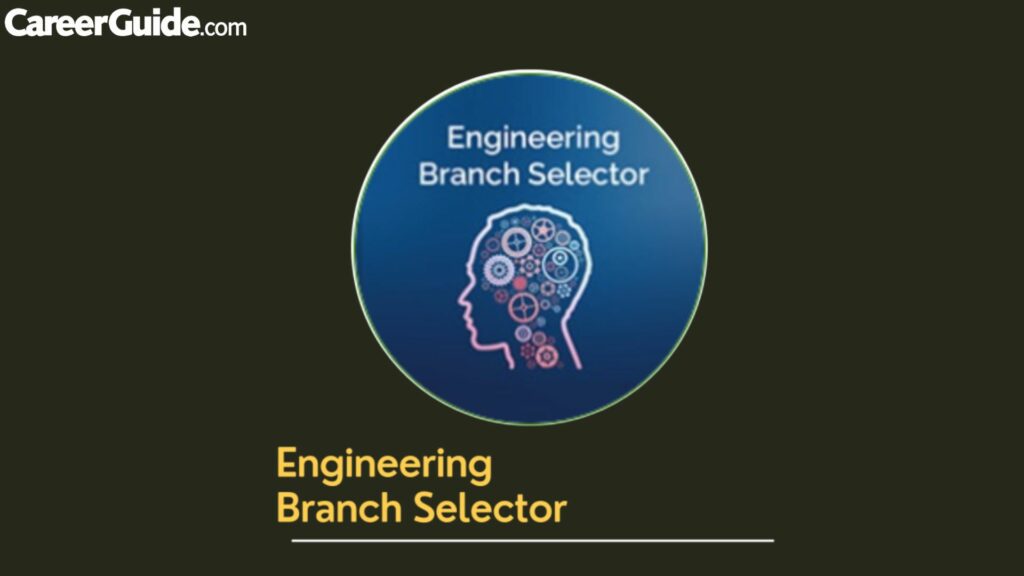List of 5 psychometric testing tools for organization and why are they used? Talking about employees who work better in an organization full of their individuality, has become a reason for understanding the personality of the employee. Knowing the personality of an individual is becoming more popular in the world of business. Psychometric tools testing tools are a method to measure the personality of individuals at the workplace in a team. According to a newspaper, there are millions of people who are stuck in wrong jobs, because there is an increase in overeducated workers. You can see that job seekers are just based on qualification, not the skills they might possess. Psychometric tools. This thing creates a mismatch for the required skills for the job. You come across types of skills that can be appropriate and valuable to a role. To know more about psychometric tests you can continue to read the article.
These are some of the most commonly used psychometric tools testing tools, and the specific tools used may vary depending on the needs of the organization. The role being assessed. It is important to use psychometric testing tools in an ethical and responsible manner, and to consider the results of the tests. In the context of other relevant information, such as previous work experience and education.
Among the list of 5 psychometric testing tools for organizations. These Psychometric tests for graduate students often help them in identifying and enhancing their skills, knowledge, and personality. These tests are very important since they’re often used during the preliminary screening stage, or as part of an assessment center. By giving these famous psychometric tools test. One can improve their skills as these tests are gives a report as a form of result in which we can get familiar with all our skills, strengths, weaknesses, talents. Also which job suits us the best that can also be figured out. The majority of psychometric tools is completed online, though some paper questionnaires remain. Most tests are time-based, but in some tests, there can be breaks in between and those tests can be completed in multiple sittings.
WHAT ARE PSYCHOMETRIC TESTING TOOLS?
I would like you all to get familiar with the Psychometric tools list, In this psychometric tools. List there is a list of 5 Psychometric Testing Tools for organizations. In which Questionnaires that are used for psychological assessments are a part of the psychometric tools. In both research and practice, psychometrics testing tools allow us to objectively measure things like personality traits, behaviors, emotional experiences, and psychological symptoms. Students and trainees often can’t afford to fork out expensive licenses and manuals for their research. Luckily some very kind researchers make their measures freely available online to support research and the development of new knowledge. The below-mentioned Psychometric Tools list would help you all know about how the Psychometric Testing Tools work. And how they help build a stronger personality. I would like you all to get accustomed with the List of 5 Psychometric Testing Tools For Organizations. This psychometric tools List would guide you all to get familiar with the Psychometric Testing Tools in a better way psychometric tools
Ideal Career Test
The Ideal Career Test is a comprehensive psychometric tools designed to assist individuals in identifying suitable career paths. That align with their interests, skills, values, and personality traits. This test aims to provide valuable insights into the types of occupations and work environments. That would be a good fit for an individual, helping them make informed decisions about their career choices.
The test begins by evaluating an individual’s interests and passions. It explores their preferences for various activities, hobbies, and subjects. This assessment helps identify areas that genuinely captivate the individual and can guide them towards career paths that align with their personal interests.
The psychometric tools also evaluates an individual’s skills and aptitudes. It explores their strengths in different areas such as problem-solving, communication, creativity, leadership, and technical abilities. By understanding their skill set, individuals can identify careers that allow them to leverage their natural talents and develop their potential. psychometric tools
Another essential aspect of the Ideal Career Test is the evaluation of an individual’s values and work preferences. It explores their desired work-life balance, preferred work environment, level of independence, and desire for social interaction. Understanding these factors helps individuals find careers that match their values and provide a satisfying work experience. psychometric tools
Personality traits are also a crucial part of the assessment. The test explores an individual’s personality dimensions. Such as extroversion/introversion, openness to new experiences, conscientiousness, emotional stability, and agreeableness. By considering their personality profile. Individuals can identify careers that align with their temperament and work styles, as well as occupations. That provide a conducive environment for personal growth and job satisfaction.
After completing the Ideal Career Test, individuals receive a detailed report outlining their interests, skills, values, personality traits, and recommended career paths. This report serves as a valuable resource for making informed decisions about career choices, setting realistic goals. And pursuing further education or training. psychometric tools.
Engineering Branch Selector Test
The Engineering Branch Selector Test is a specialized assessment tool designed to assist individuals in exploring and identifying suitable branches or disciplines within the field of engineering. This test aims to evaluate an individual’s interests, skills, values, and personality traits specifically related to the various branches of engineering, providing valuable insights into potential career paths within this diverse and rapidly evolving field. psychometric tools
The test begins by assessing an individual’s interests in different areas of engineering, such as mechanical, electrical, civil, chemical, computer, or aerospace engineering. It explores their preferences for working with machines, structures, electronics, software, or specific applications. This assessment assists individuals in narrowing down their interests within engineering and identifying potential branches that align with their passion.
In addition to interests, the test evaluates an individual’s skills and aptitudes relevant to engineering. It examines their abilities in problem-solving, mathematical analysis, technical knowledge, design thinking, programming, or laboratory work. By understanding their skills within engineering, individuals can explore branches that allow them to leverage their strengths and contribute meaningfully to their chosen field. psychometric tools
The assessment also takes into account an individual’s values and work preferences within engineering. It explores their desired work environment, preferred level of hands-on work, teamwork dynamics, or potential areas of societal impact. Considering these factors helps individuals find engineering branches that align with their values, provide job satisfaction, and offer opportunities for professional growth.
Personality traits are another crucial aspect of the Engineering Branch Selector Test. It assesses dimensions such as logical thinking, attention to detail, creativity, problem-solving approach, and collaborative skills. By understanding their personality profile, individuals can identify engineering branches that align with their natural inclinations and work styles, fostering personal fulfillment and career success.
Upon completion of the Engineering Branch Selector Test, individuals receive a comprehensive report outlining their interests, skills, values, personality traits, and recommended engineering branches. This report serves as a valuable resource for making informed decisions about academic pursuits, such as choosing an engineering major or exploring specialized fields within the discipline. psychometric tools
Professional Skill Index
The Professional Skill Index (PSI) is a comprehensive assessment tool designed to evaluate and measure an individual’s professional skills across various dimensions. It provides a comprehensive overview of an individual’s strengths, areas for improvement, and potential areas of professional growth. The PSI is a valuable resource for individuals seeking to understand and enhance their skillset in order to excel in their careers.
The PSI evaluates a wide range of professional skills that are highly valued in the workplace. These skills may include communication, problem-solving, teamwork, leadership, adaptability, time management, critical thinking, creativity, emotional intelligence, and technological proficiency, among others. By assessing these skills, the PSI provides individuals with a clear understanding of their current skill level in each area.
The assessment process involves a combination of self-assessment and objective evaluation. Individuals may provide self-ratings for each skill, reflecting their perception of their own abilities. Additionally, feedback from peers, supervisors, or mentors may be collected to provide a more comprehensive and balanced assessment of an individual’s skills. psychometric tools
The PSI provides individuals with a detailed report that outlines their skill strengths and areas for improvement. This report may include suggestions for development opportunities, such as training programs, workshops, or mentorship. The PSI helps individuals prioritize their skill enhancement efforts and create a plan for professional growth.
Employers and organizations also find the PSI valuable for talent development and succession planning. By assessing the professional skills of their employees, employers can identify skill gaps within their workforce and design targeted training programs or reassign individuals to roles that align better with their strengths. The PSI enables organizations to optimize their talent pool and foster a culture of continuous learning and development.
Educator Professional Skills
Educator professional skills encompass a wide range of competencies and abilities that are crucial for effective teaching and student engagement. These skills go beyond subject matter expertise and play a vital role in creating a positive and impactful learning environment. Here is an overview of some key professional skills that educators should possess:
- Pedagogical Expertise: Educators should have a deep understanding of teaching methods, curriculum development, and assessment strategies. They should be skilled in designing engaging and effective lesson plans that cater to diverse learning styles and abilities.
- Communication Skills: Clear and effective communication is essential for educators to convey information, facilitate discussions, and provide feedback. Strong verbal and written communication skills help educators engage with students, parents, and colleagues effectively.
- Classroom Management: Educators need to create a well-managed and organized classroom management environment that promotes discipline, respect, and a positive learning atmosphere. Effective classroom management skills enable educators to establish routines, manage student behavior, and address conflicts constructively.
- Differentiation: Educators should be adept at differentiating instruction to meet the individual needs of students. This involves adapting teaching methods, materials, and assessments to accommodate diverse learning styles, abilities, and backgrounds.
- Technology Integration: Proficiency in leveraging technology tools and resources is becoming increasingly important in education. Educators should be skilled in integrating technology into their teaching practices to enhance student learning, engagement, and digital literacy.
- Collaboration and Teamwork: Educators often work collaboratively with colleagues, administrators, and other stakeholders. Strong collaboration skills enable educators to participate in professional learning communities, contribute to team efforts, and effectively communicate with colleagues and parents.
- Cultural Competence: In diverse classrooms, educators need to exhibit cultural competence by understanding and valuing the backgrounds, experiences, and perspectives of their students. This skill helps create an inclusive and respectful learning environment that celebrates diversity.
- Continuous Learning: Educators should be committed to lifelong learning and professional development. They should engage in ongoing professional growth, stay updated with research and best practices in education, and seek opportunities for self-improvement.
Skill Based Career Test
A skill-based career test is a specialized assessment tool designed to help individuals identify career paths that align with their unique skills and abilities. This type of test focuses on evaluating an individual’s specific skill set, providing valuable insights into potential career options where those skills can be effectively applied.
The test begins by assessing a wide range of skills that are relevant to various professions and industries. These may include technical skills, such as programming, data analysis, or engineering, as well as soft skills, such as communication, problem-solving, leadership, or creativity. The assessment provides individuals with a comprehensive understanding of their skill strengths and areas for further development.
Based on the results of the assessment, the test generates a detailed report outlining potential career paths that match the individual’s skill profile. The report may provide information on industries, job roles, and specific occupations that require or value the assessed skills. This guidance helps individuals explore career options that are aligned with their natural aptitudes, maximizing their potential for success and job satisfaction.
Furthermore, the test may also provide recommendations for skill development or training opportunities to enhance existing skills or acquire new ones. This allows individuals to proactively pursue professional development activities that align with their career goals and enhance their marketability in their chosen field.
The skill-based career test is a valuable tool for individuals at various stages of their career journey. It can assist high school students in selecting educational paths that align with their skills, guide college students in choosing a major or specialization, and aid professionals in exploring career transitions or advancement opportunities.
It is important to note that the skill-based career test should be considered as one component of the career exploration process. It should be used in conjunction with personal introspection, research, and guidance from career counselors or mentors. Additionally, the test results should be evaluated alongside individual interests, values, and long-term career goals to make well-informed decisions.
FAQ About What Are Psychometric Testing Tools For Organizations
Q1. What are psychometric testing tools for organizations?
Psychometric testing tools for organizations are assessment instruments designed to measure various psychological attributes of individuals in a standardized and objective manner. These tools are specifically developed to evaluate aspects such as personality traits, cognitive abilities, skills, attitudes, and behavioral tendencies. They provide valuable insights into an individual’s suitability for specific roles within an organization and help employers make informed decisions during the recruitment and selection process.
Q2. How do psychometric testing tools work?
Psychometric testing tools typically consist of a series of carefully constructed questions or tasks that are administered to individuals. The responses are then scored and analyzed using statistical techniques to assess the relevant psychological attributes. These tools are designed to be reliable and valid, meaning they consistently measure what they are intended to measure and accurately predict relevant outcomes, such as job performance or team compatibility.
Q3. What types of psychometric tests are commonly used in organizations?
- Personality Tests: These assess an individual’s personality traits, such as extraversion, conscientiousness, openness to experience, and emotional stability.
- Cognitive Ability Tests: These measure an individual’s cognitive aptitude, including verbal reasoning, numerical ability, logical thinking, and problem-solving skills.
- Emotional Intelligence Tests: These evaluate an individual’s emotional intelligence, including self-awareness, empathy, social skills, and emotional regulation.
- Skills and Aptitude Tests: These assess specific skills or aptitudes relevant to particular job roles, such as technical abilities, language proficiency, or managerial skills.
- Leadership Assessment: These tests focus on evaluating leadership potential, identifying leadership styles, and assessing key competencies necessary for effective leadership.
- Team Compatibility Tests: These assess an individual’s compatibility with a specific team or work environment, evaluating factors such as communication style, teamwork preferences, and conflict resolution abilities.













